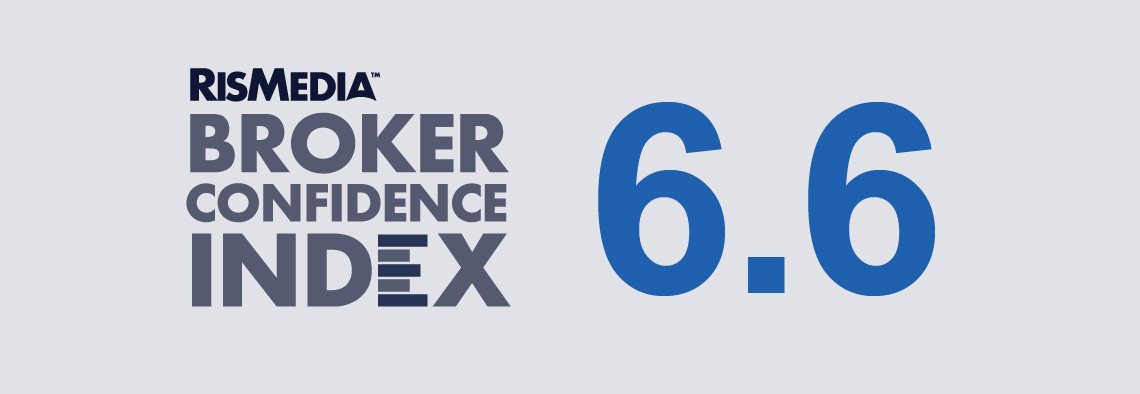We’re still in the throes of winter, mortgage rates are still more than double what they were during 2020-21, and listings are few and far between, but brokers are telling RISMedia that an early seasonal rebound is already here as consumers adapt their behavior to a post-pandemic new normal.

With the RISMedia Broker Confidence Index (BCI) hitting 6.6 in January—slightly higher than at this point last year, jumping more than half a point from the previous month—it appears that traditional seasonality is continuing to skew from historic norms, and consumers are not waiting for spring to jump into the real estate market.
“(I am) cautiously optimistic,” said Patrick Shea, president and CEO of Windermere-owned Lyon Real Estate in California. “The national narrative suggests rates will be softening and inventory rising over the next few months. Most analysts seem to believe the downturn has hit bottom.”
Although we won’t have January home sales until late this month, brokers on the ground are reporting that at least in some regions, business was brisk last month. That trend, which RISMedia tracked in both 2022 and 2023, appears to be a shift from the usual timing of market fluctuations, when March traditionally marked the beginning of a rebound.
But a combination of mortgage rates—which have essentially leveled off around 6.6% after flirting with 8% in the fall—and a strong economy seems to be boosting activity early. The 0.6 point jump in the BCI was the largest in the last 12 months, eclipsed only by a full point increase between December 2022 and January 2023.
Florida-based Broker/Owner Ray Rivera noted that the housing market’s major challenges from the last couple years—rates and inventory—are both improving simultaneously. Texas-based Broker/Owner Scott Myers said that inventory remains an issue in his region, but celebrated the last two months of mortgage rate decreases as a boost for his confidence to start 2024.
Inflation, which last year was cited by many brokers as their primary concern, has not been mentioned at all in the last three BCI surveys.
All of this comes alongside plenty of other uncertainties that are not immediately affecting the buying and selling of homes. Major brokerages and the National Association of REALTORS® (NAR) continue to face down a landslide of lawsuits. Commercial real estate also promises to create challenges down the road, with ripple effects that could spread across the broader economy.
In the near term, though, it appears brokers are ready to celebrate—and take advantage of—a near term victory, after many economists and pundits predicted a crash or recession by this time.
Consumer adjustment
This month, brokers were asked if the clients or prospective clients they encounter have adapted to new market realities after the huge jump in rates back in 2022 and see-sawing demand left many buyers and sellers with unrealistic expectations about the process.
Notably, a majority of brokers still say that sellers have unrealistic expectations for how quickly and for how much their homes will sell for—not a surprise, as many people still remember the boom markets of 2020-21.
But that majority is small—only 61% of brokers said their seller clients came in with those unrealistic expectations. That means around four-in-10 sellers understand that they might have to wait longer than a day or two before getting a juicy offer, and may have to negotiate some contingencies.
Buyer expectations are also seemingly improved. Only 41% of brokers said their buyer clients went into the market with unrealistic expectations—hoping for price drops or expecting to find lower rates.
That is broadly encouraging, as one factor many economists have highlighted when talking about a long-term real estate rebound is the psychological one—consumers accepting that the historic opportunities of 2020-21 are not coming back, and that they might have to give up their 3% rate and live in a more normalized interest environment.












